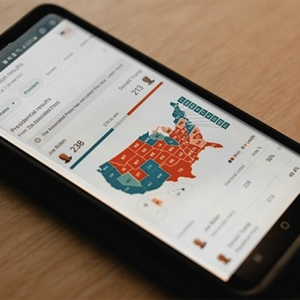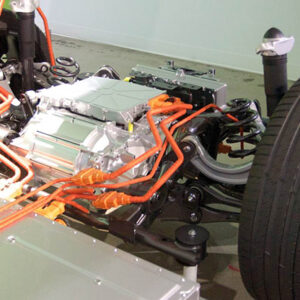
When buying solar batteries, you want to ensure you get the right ones for your system. Read this guide to understand how to choose the correct ones.
Solar energy is a choice for many people because it doesn’t burn any more fossil fuels. A solar battery backup power is essential to any solar energy system.
Solar batteries are an integral part of house solar panel systems. These systems must have some form of battery to work optimally from total capacity to zero charges. To fully understand how these batteries work, knowing where they came from, what they are for, and what to look for when purchasing is essential.
Look here if you want a solid, basic understanding of solar batteries. You’ll avoid potential pitfalls, making for a smooth, reliable system buy.
Understanding Your Solar Panel System & Energy Storage Needs
Choosing suitable solar batteries for your system is integral to understanding your solar panels’ energy storage needs. There are several factors to consider, such as system size and usage. Include the amount of direct sunlight exposure and the number of hours of use.
Reviewing the battery specifications for compatibility with the solar inverter and the warranty, ampere-hours, and cell type are also essential. Additionally, consider the size and weight of the battery and its available options. Lead-acid, lithium-ion, and saltwater battery types are popular choices in solar-storage solutions.
Research can help you decide the best battery type, size, and cell type to meet your energy storage needs. With the correct battery, you can adequately store and supply solar energy to meet your system’s needs.
Exploring Types Of Solar Batteries
When exploring types of solar batteries, it’s essential to understand and consider the life cycle and the storage capacity and power requirements. For example, lead-acid batteries are ubiquitous and relatively inexpensive. But they must be regularly checked, maintained, and replaced every three to five years.
Nickel-cadmium and lithium-ion batteries are longer-lasting and lightweight. It’s more efficient than lead-acid but is more expensive. Deep-cycle batteries are often used in solar off-grid applications. They are designed for low-rate discharges over more extended periods.
LiFePO4 batteries are gaining popularity in off-grid systems due to their faster charge times and improved life cycle. As you can see, many choices are available when selecting the correct solar battery for your system. Consider the size, weight, charge cycles, longevity, and budget when making this critical decision.
Analyzing Battery Capacity
When selecting suitable solar batteries for your system, capacity should be a primary consideration. Understanding which battery capacity is best for the system size you plan to create is essential. The capacity for solar batteries is usually determined in Amp Hours (Ah).
To decide the capacity required, use an Amp Hour Calculation to calculate the wattage times the hours of sunlight per day. The number of daylight hours will impact the batteries’ total storage size.
Furthermore, looking at other features such as recharge time, maintenance, and the number of life cycles is essential. Ensure you are making appropriately informed decisions based on data. Research and read reviews on the batteries you want to invest in and ensure they align with solar for your house.
Weighing Cost vs. Quality
When choosing suitable solar batteries for your system, weighing cost vs. quality is difficult. Depending on your needs, budget, and lifestyle, you may opt for a low-cost battery that requires more frequent upgrades. Or you may invest in a high-quality battery with a lengthy warranty period.
The up-front cost of investing in high-quality solar batteries may seem high. But in the long run, the savings in maintenance and replacement costs can compensate for the higher price.
Ensure you understand the details of any warranty and the length of coverage. Some manufacturers’ warranties are not comprehensive. Don’t be fooled by “lifetime” coverage claims.
Research battery types. Compare lifespans, costs, and warranties between manufacturers and battery sizes. Decide which best meets your needs.
Things To Avoid When Choosing Solar Batteries
When choosing solar batteries for your system, there are a few things to avoid. Be wary of cheap batteries. They tend to be unreliable, have a limited lifespan, and often have inferior performance.
Avoid storage with a low Depth of Discharge (DoD). The battery’s DoD measures how much of its total capacity will be available at any moment.
Furthermore, you should pay attention to the battery’s resistance. Good-quality batteries will have a higher resistance. It makes them less likely to face any issues associated with high currents.
Finally, ensure the battery is compatible with your solar energy system. Incorrect sizes can damage your array or the battery. You should invest in a quality product with a long life and good performance.
This way, you can feel confident that you will get the best value for your money.
Proper Battery Maintenance & Lifespans
About solar battery choice and maintenance, you need to factor in lifespan. This is to maximize the return and reliability of your solar battery system. Choosing a battery system suited to your specific electricity needs is necessary.
High-quality batteries and proper maintenance can extend the battery life. It will keep your system running efficiently with proper maintenance and care. You should be able to extend the lifespan of your solar batteries and maximize your return on investment.
Regular checking, cleaning, and operation should occur within the manufacturer’s specified limits. It should help keep your batteries running and in optimal condition for the longest possible time.
Find The Right Solar Batteries For Your System
Solar batteries are an essential energy system that gives you access to clean energy and energy efficiency. When choosing suitable solar batteries for your system, consider factors such as battery type, capacity, compatibility, and safety.
When deciding, always focus on your needs and budget to create the best system for your home. Now that you’re equipped with the necessary knowledge. Pick the perfect solar battery for you!
Did you find this article helpful? If so, please keep reading for more helpful green living articles.


